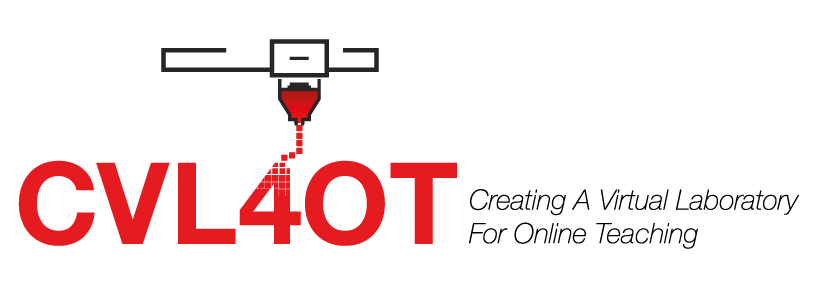Be a part of Creating a Virtual Laboratory for Online Teaching (CVL4OT) project
Join Europe’s first dedicated training programme for biomaterials students to experience multinational online training and reach the 3D robotic bioprinter laboratory provided with distance learning.
Between March 2023 and May 2023 (Online)
Registration is open until 3th of March 2023
Biomaterials and Tissue Engineering Online Training Programme

Deadline application March 3th, 2023
Apply to the Program https://www.surveymonkey.com/r/2W2NSZT
Registration Process
The registration process for the Biomaterials and Tissue Engineering Online Training Programme consists of two steps:
STEP1: Registering your interest by filling in the application form. https://www.surveymonkey.com/r/2W2NSZT
STEP2: (Only applicable if you opt for the Participation): You will signup to the Online training Member Area by Submitting your Personal email and password and you will create your online training account. After signup you will receive an email with the activation link to enter your online training account.
About the programme
Biomaterials and Tissue Engineering Course is an online teaching program for curious minds to learn about current trends in biotechnology and have opportunities to try a robot-armed 3D printer with their computer wherever they want to.
Biomaterials and Tissue Engineering Online Training is a 8 weeks program organised by expert academics from Spain, Romania, France and Turkey.
The online programme combines international online training modules, online laboratory, innovative remote-controlled experimental studies and Biomaterials course book.

Deadline application March 3th, 2023
How you benefit
Access to Europe’s leading experts and content on the Biomaterials field.
Accelerate your digitalization development through doing an experiment in an online laboratory.
Discover new tools and methods in the Biomaterials field.
Engage with international academicians and connect with them through the training.
Free of charge, participants do not pay tuition.
Who Can Apply?
The Program is for you if:
– You are curious and want to learn more about the Biomaterials field.
– You are open and eager to learn in a multicultural environment.
– You are willing to utilize the digital tools and the methodology taught in the online portal because you see online learning is part of the real world.
The Program is for you if:
– Students enrolled in the current academic year in any of the Higher Education Institutions in Spain, France, Romania, Turkey.
– Students with at least an English level equivalent to a B2 should be aware that the Program will be run in English.
– Priority will be given to students of the Higher Education Institutions participating in the project, which are: Marmara University (Turkey), The Universitat Internacional de Catalunya, Yıldız Technical University, University POLITEHNICA of Bucharest, The University of Technology of Compiègne.
– Students from other institutions are also welcome
– Undergraduate, Master, Engineer and PhD students from the field of Materials Engineer, Bioengineering , Chemistry Engineering, Medical Engineering and similar programs.
Programme Curriculum
MODULE 1
Introduction of Biomaterials and
Tissue Engineering
Materials
Design and Fabrication
Biomimetic
Biomaterials in Tissue Engineering
MODULE 2
Tissue Regeneration Processing
and Mimicking
Tissue Regeneration
ECM structure and properties
Scaffold design
Tissue products
MODULE 5
s
History of Nanotechnology
Properties of nanotechnology
Methodologies
Applications
MODULE 7
Drug Delivery
for Tissue Engineering
Mechanism of drug delivery system (DDS)
Types of DDS
Design of DDS
Examples of DDS
MODULE 8
Cell-Material
Interaction
Types of cell interaction
Mechanism of cytoskeleton
Properties of cell interaction
Immunological response
MODULE 10
Scaffolds
Fabrication Processes
Basic fabrication process
Scaffold design
Techniques of fabrication
Advanced fabrications
MODULE 11
Physicochemical
Characterization of Scaffolds
Physico-chemical properties
Sol-gel transition mechanisms
Biopolymer hydrogels
Bioprinting applications
MODULE 13
Additive
Manufacturing
Introduction to additive manufacturing
Design of a workflow for 3D printing
Various of 3D printing methods
Example of 3D printers
MODULE 14
s
History of Bioprinting
Types of Bioprinters
Bioinks
Example of 3D bioprinted tissues
MODULE 15
s
Using of 3D bioprinter
Distance learning
Learning through experience
New learning method



“The information and views set out in this web-site are those of the authors and do not necessarily reflect the official opinion of the European Union. Neither the European Union institutions and bodies nor any person acting on their behalf may be held responsible for the use which may be made of the information contained therein.”
